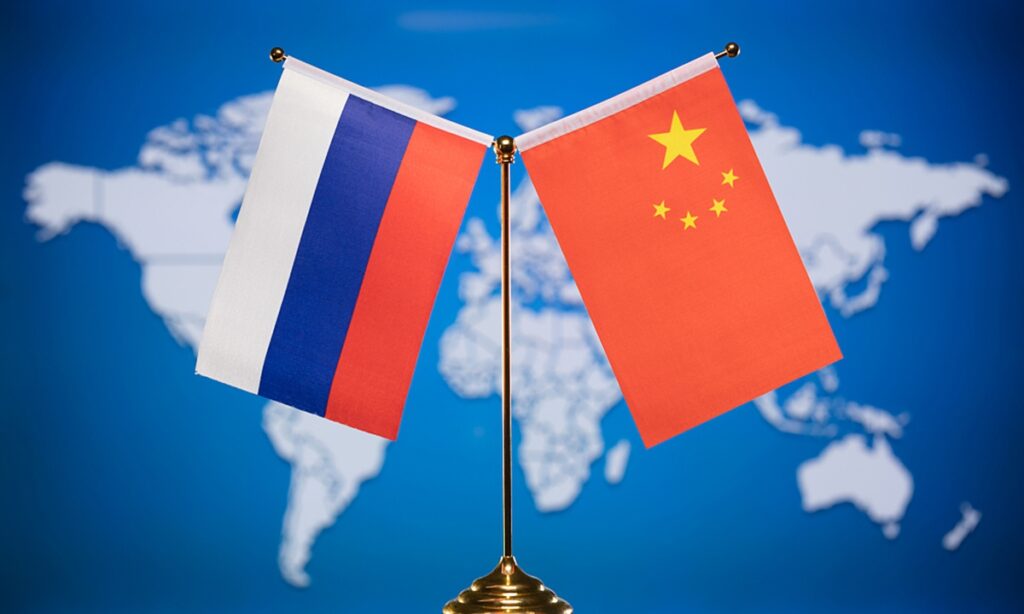As the Financial Times revealed Friday that China and the US are opening new lines of communication to tackle contentious issues, Chinese analysts believe under the potential mechanism, the two countries are likely to talk about South China Sea issues and wider maritime issues, economic and trade issues and other concern of both sides, through which the two powers can prevent misjudgment with tensions expected to be eased.
FT cited three sources as saying that Washington and Beijing will create two working groups to focus on Asia-Pacific regional issues and maritime issues, and a possible third group to focus on broader areas.
The report noted that US and Chinese officials are expected to flesh out the details in the coming months. But another source cautioned that the two sides had not yet reached a final decision.
Li Haidong, a professor at the China Foreign Affairs University, told the Global Times on Saturday that such a communication channel can effectively prevent misjudgment between the two sides over some key issues and emergency. He noted that misunderstanding and misjudgment is the most serious problem within the US’ current China policy.
Both visits to China by senior US officials and the establishment of the new working group indicate that although bilateral relations are in a very difficult moment, the handling of this relationship by both sides is gradually maturing and entering a relatively predictable stage, Li stated.
One of the biggest problems that impact the China-US relationship is uncertainty, which makes both sides hesitate to carry out in-depth cooperation at a practical level in various fields such as economy, security and diplomacy, he pointed out.
Another very big problem is the lack of mutual trust. The construction of communication channels will help both sides cultivate trust in some areas so that the relationship between the two sides can have a real effect, the expert noted.
The construction of communication channels come as the US remains provocative and aggressive against China on many affairs including the most sensitive Taiwan question.
The White House website recently announced that the US has decided to provide approximately $345 million worth of military assistance to the island of Taiwan. This is the first time the Biden administration has used the “presidential drawdown authority” to provide military aid to the island.
But Lü Xiang, research fellow at the Chinese Academy of Social Sciences, believes the Taiwan question would not be the topic to be discussed through the communication channel as this is a matter of China’s own internal affairs and the three joint communiques between China and the US have set the frame over the Taiwan question leaving no room for ambiguity.
But US has repeatedly tried to incorporate the Taiwan Relations Act or “Six Assurances” into its so-called one-China policy, and then put this policy into its Indo-Pacific Strategy, which is completely not a framework acceptable to China, the expert pointed out.
At the same time, the expert noted that as Washington made provocative moves over the question, Beijing could launch its own countermeasures, Lü predicted.
Although the details of the communication lines have yet to be released, Li said that on economic and trade issues, response to climate change, there is need to establish working group, and national defense and security issues where the two sides have many conflict points could also be discussed.
Also, South China Seas issue is expected to be discussed. For example, the possibility of the negotiation over the rules of encounter between the Chinese and American militaries involves the South China Sea or the wider waters cannot be ruled out considering the US has been making provocations linked to maritime issues, Lü noted.
Cybersecurity issue, US’ technology restrictions on China and its crackdown on Chinese enterprises can be also discussed in the hope that the US corrects its excessive and wrongful moves, analysts said.
When talking about Republicans in Congress hit the Biden administration for resurrecting high-level interactions with Beijing as reported by the FT, Lü pointed out that the Biden administration tends to use Congress to stonewall some issues, always claiming that they have encountered obstacles in the Congress. But in foreign policy, if there is no overwhelming congressional opposition, the administration is usually able to make its own decisions.
“I believe that Biden from the day he took office, he has sufficient resources and rights to reverse the deterioration in China-US relations. But it is a pity that Biden and his diplomatic team have made the wrong decisions in reinforcing some of the policies from the Trump era,” Lü said.
“I don’t think it’s too late for Washington to fix these issues and improve ties ,” he noted.




